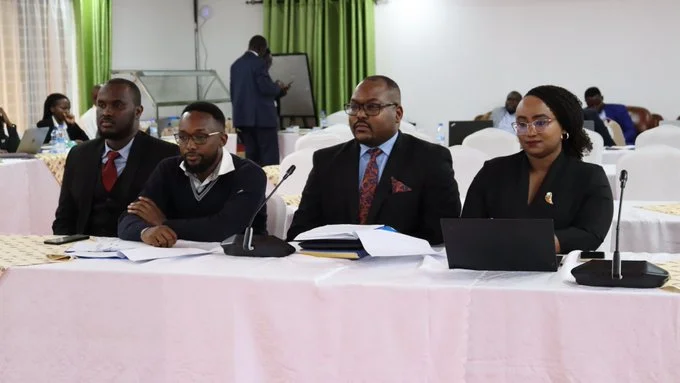The Kenyan Section of the International Commission of Jurists (ICJ-Kenya) presented its submission to the National Dialogue Committee at the Bomas of Kenya in Nairobi.

ICJ Kenya’s submissions included a call on the government to address the country’s high cost of living. Among the pertinent issues presented, they pointed out corruption, irresponsible government borrowing, and cases of government wastage.
The submissions from ICJ Kenya were led by Deputy Executive Director Demas Kiprono. He noted that human rights are determined by the social and economic rights in a state. Consequently, there is a need to create a more equitable society where individuals live in dignity.
In addition to that, he mentioned that protecting and promoting social and economic rights is essential to building a more inclusive and successful world for every person.
In his submissions, Kiprono urged the government to fully implement Article 43 of the Constitution while also calling out its failure to devolve certain functions leading to confusion and wastage of public resources. pic.twitter.com/QQPaEVFY8g
— ICJ Kenya (@ICJKenya) September 27, 2023
“Government wastage is often associated with inefficiency and mismanagement. It siphons resources away from essential services. This includes misallocating funds, overpriced contracts, and ghosting workers on payrolls,” said Kiprono.
According to him, the wastage hinders development which contributes to budget deficits. Furthermore, the consequence of low development is more borrowing from international institutions. He mentioned that Kenya ought to prioritise transparency, effective oversight and proper accountability mechanisms.
He stated that Kenya needs to combat corruption, ensure proper fiscal management and have responsible borrowing practices. Consequently, Kenya can allocate resources effectively and create a conducive environment for social progress and economic growth.
Kenyan Government Expenditure
This address comes a few days after the public found out about the number of ghost workers in government offices being paid. Moreover, they realised that most officials were paid allowances for activities that were more for luxury than official business. Kenyans responded harshly to this information. Furthermore, the retaliation against new taxes increased after the report was released. Citizens were inclined to deny the new taxes as it seemed like a ploy to enrich the government officials rather than progress the state.
Part of the recommendations by the IMF to Sub-Saharan countries was ensuring trust exists between the government and citizens on fiscal matters. If the citizens are assured that their finances are being well cared for, they would be more inclined not to retaliate against new fiscal policies.
Read Also: MF Suggests New Way to Rollout Tax in Kenya
The ICJ further recommended that before running to borrowing more money to finance projects in the country, officials should first ensure proper management of funds internally. This may even erase the need to borrow or warrant a less urgent need to borrow.
Subscribe to Switch TV















